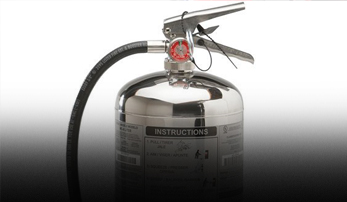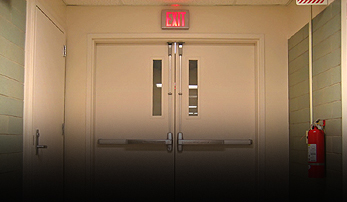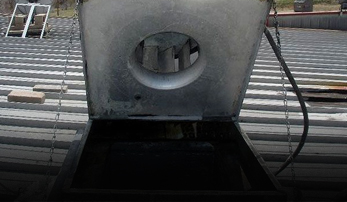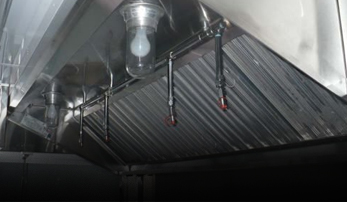Ghanaian Cedis Plummets as Political Tensions Rise – A Comprehensive Look at breaking news in ghana _2
- Ghanaian Cedis Plummets as Political Tensions Rise – A Comprehensive Look at breaking news in ghana today and Economic Impacts.
- Factors Driving the Cedis Depreciation
- Impact on Businesses and Consumers
- Government Responses and Policy Measures
- The Role of the Bank of Ghana
- The Impact of Political Instability
- Looking Ahead: Potential Scenarios and Solutions
Ghanaian Cedis Plummets as Political Tensions Rise – A Comprehensive Look at breaking news in ghana today and Economic Impacts.
The economic landscape of Ghana is currently facing significant turbulence, marked by a steep decline in the value of the Ghanaian Cedis against major international currencies. This breaking news in ghana today stems from a complex interplay of factors, including rising political tensions, increasing national debt, and global economic headwinds. The rapid depreciation of the Cedis is causing widespread concern among citizens and businesses alike, prompting urgent discussions about potential solutions and their impact on the nation’s economic stability. This article delves into the key drivers behind the Cedis’ fall, analyzes its ramifications, and explores possible strategies for navigating this challenging period.
The situation is particularly concerning as it impacts the cost of living for ordinary Ghanaians, making imports more expensive and eroding purchasing power. Businesses are struggling with increased input costs, potentially leading to price hikes and reduced economic activity. The government is under pressure to implement effective measures to stabilize the currency and restore confidence in the economy.
Factors Driving the Cedis Depreciation
Several interconnected factors are contributing to the Cedis’ sharp decline. A primary concern is Ghana’s growing national debt, which has reached unsustainable levels. Servicing this debt consumes a significant portion of government revenue, leaving limited resources for essential public services and economic development. Furthermore, political instability and uncertainty surrounding policy changes are discouraging foreign investment, exacerbating the downward pressure on the Cedis.
Global economic conditions, including rising interest rates in developed economies and a strengthening US dollar, are also playing a role. These external factors make it more expensive for Ghana to borrow money and attract foreign capital. The impact of the Russia-Ukraine war has also contributed to rising global inflation, which indirectly affects the Ghanaian economy.
| 2020 | 5.75 | 62.8% |
| 2021 | 6.05 | 78.9% |
| 2022 | 7.8 | 81.8% |
| 2023 (Q3) | 10.5 | 85.3% |
Impact on Businesses and Consumers
The depreciation of the Cedis is having a profound impact on both businesses and consumers in Ghana. For businesses, the increased cost of imports leads to higher production costs, reducing profitability and potentially forcing them to raise prices. This can lead to a decrease in demand and slower economic growth. Small and medium-sized enterprises (SMEs), which are the backbone of the Ghanaian economy, are particularly vulnerable to these challenges. Import-dependent firms suffer the most.
Consumers are also feeling the pinch as the cost of essential goods and services rises. The price of imported food, fuel, and other necessities has increased significantly, making it more difficult for ordinary Ghanaians to afford a decent standard of living. Inflation is eroding purchasing power, and many families are struggling to make ends meet.
- Increased cost of imported goods
- Reduced purchasing power for consumers
- Difficulty for businesses to afford raw materials
- Potential for unemployment
- Decreased investor confidence
Government Responses and Policy Measures
The Ghanaian government has implemented various measures to address the Cedis’ depreciation and stabilize the economy. These include tightening monetary policy by raising interest rates, seeking financial assistance from international organizations like the International Monetary Fund (IMF), and implementing fiscal austerity measures to reduce government spending. The government is also attempting to diversify the economy and reduce its reliance on commodity exports, particularly cocoa and gold.
However, these measures have had limited success so far. Critics argue that the government’s policies are not bold enough to address the underlying structural issues that are driving the economic crisis. Concerns remain that further austerity measures could exacerbate the hardship faced by ordinary Ghanaians. Furthermore, achieving sustained economic stability requires addressing the issue of corruption and improving governance.
The Role of the Bank of Ghana
The Bank of Ghana (BoG) plays a critical role in managing the exchange rate and maintaining monetary stability. The BoG utilizes various tools, including interest rate adjustments, foreign exchange interventions, and reserve requirements, to influence the value of the Cedis. However, the BoG’s interventions have been largely unsuccessful in halting the Cedis’ decline, highlighting the depth of the economic challenges facing the country.
The BoG is also responsible for regulating the banking sector and ensuring the stability of the financial system. A robust and well-regulated financial system is essential for attracting foreign investment and promoting economic growth. The BoG is working to strengthen the banking sector and address issues of non-performing loans. Effective communication and transparency in monetary policy decisions are also crucial for building public trust and confidence.
A key point of contention surrounding the BoG’s actions has been its utilization of foreign exchange reserves. There have been debates on whether the interventions have been timely and effective, and whether the reserves are being managed optimally. Balancing the need to defend the Cedis with the need to maintain sufficient reserves for imports and debt servicing remains a significant challenge.
The Impact of Political Instability
Political instability is a significant contributing factor to the economic challenges facing Ghana. Uncertainty surrounding policy changes, coupled with concerns about corruption and governance, can discourage foreign investment and undermine economic confidence. Frequent political debates and challenges to government policies create an environment of unpredictability, making it difficult for businesses to plan for the future.
Ensuring political stability and good governance is crucial for attracting investment and promoting sustainable economic growth. This requires strengthening democratic institutions, promoting the rule of law, and tackling corruption. Transparency and accountability in government are essential for building public trust and fostering a favorable investment climate. Addressing concerns about political interference in economic decision-making is also important.
- Strengthen democratic institutions
- Promote the rule of law
- Tackle corruption
- Ensure transparency and accountability
- Reduce political interference in the economy
Looking Ahead: Potential Scenarios and Solutions
The future outlook for the Ghanaian Cedis and the broader economy remains uncertain. Several scenarios are possible, ranging from a stabilization of the currency with gradual recovery to a further decline with continued economic hardship. The outcome will depend on a number of factors, including the effectiveness of government policies, global economic conditions, and the level of political stability.
To navigate this challenging period, Ghana needs to implement a comprehensive set of reforms aimed at addressing the underlying structural issues that are driving the economic crisis. This includes diversifying the economy, reducing national debt, improving governance, and attracting foreign investment. A long-term strategy for sustainable economic growth is essential for ensuring a brighter future for Ghana.
| Stabilization with Gradual Recovery | 30% | Currency stabilizes, moderate economic growth, reduced inflation |
| Continued Decline with Economic Hardship | 40% | Further depreciation of Cedis, high inflation, increased poverty |
| IMF Bailout and Structural Reforms | 30% | Stabilization through external funding, implementation of reforms |
A coordinated approach involving the government, private sector, and civil society is essential for implementing these reforms effectively. International support and assistance will also be crucial for helping Ghana overcome its economic challenges. It’s vital to foster a conducive environment for investment and economic activity.









Recent Comments